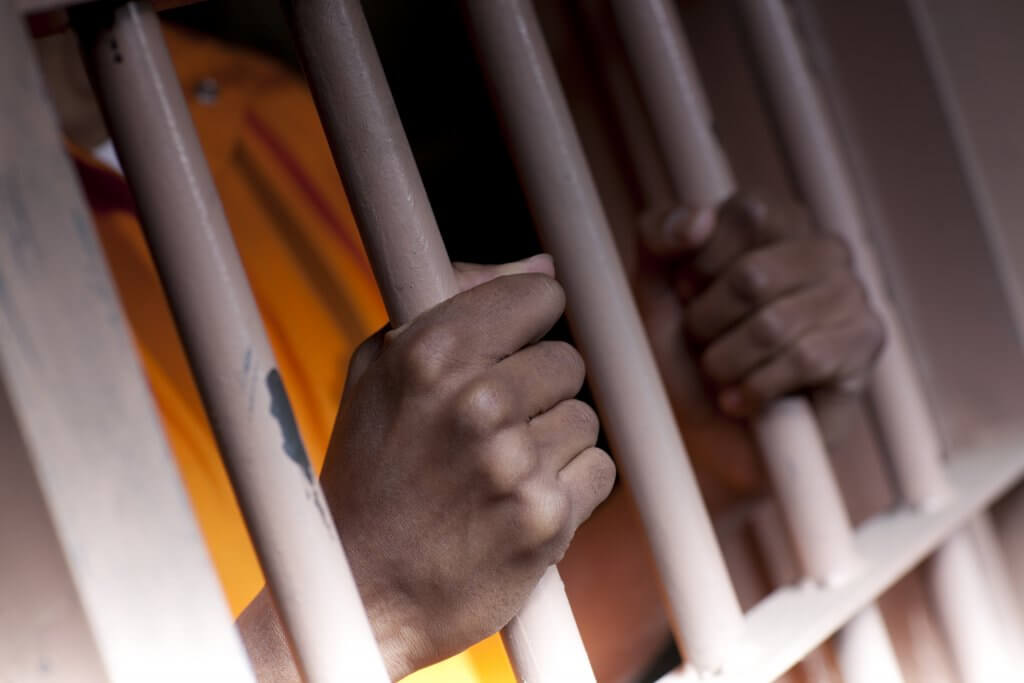
Fifty-seven persons who live in Maryland prisons, or work in or with Maryland prisons, have tested positive for the novel corona virus.
Those infected include 10 inmates, 22 correctional officers, six department employees and 19 contract workers, according to a news release Thursday from the Maryland Department of Public Safety and Correctional Services.
The numbers include inmates at Jessup Correctional Institution, Dorsey Run Correctional Facility and the Maryland Correctional Institution for Women.
A coalition of prisoners’ rights organizations held a virtual press conference Wednesday, detailing a list of demands sent to the governor to reduce the virus’ spread in state-run correctional facilities.
“Preventing and managing the spread of the virus inside facilities is an essential element of any statewide public safety plan,” they wrote. “Our State’s COVID-19 response plan is only as strong as its weakest links.”
To stave off infection, they have asked Hogan to direct state and local law enforcement agencies to limit arrests and pre-trial detention. They also asked him to release medically vulnerable populations, to release children held in state custody, to release low-risk individuals who are nearing their release dates and to provide re-entry services and improve living conditions for those who remain incarcerated.
In response, a spokesman for Gov. Lawrence J. Hogan Jr (R) tweeted an update Wednesday about measures that the department has taken to reduce infection, including temporarily discontinuing new admissions from local jails into state-run facilities.
There has been no indication that vulnerable inmates will be released early as a preventative measure.
Prisons are ripe for viral outbreaks
At the Wednesday news conference, Dr. Chris Beyrer of Johns Hopkins Bloomberg School of Public Health explained that COVID-19 is best spread through “crowding,” which is why the state has called for people to practice social distancing.
“That is enormously difficult to do for people in detention facilities,” he said, noting how hard it is for inmates to maintain good hygiene because soap is limited and alcohol-based hand sanitizer is banned.
“All the things that we are asking all Americans to do, we are enormously challenged in doing for the people whose liberty has been taken away on our behalf,” Beyrer said.
Beyrer that people misconceive that prisons are quarantined because prisons are isolated from the rest of society.
Hogan seemed to share this misconception when he said, at a March 19 press conference, that inmates “are kind of protected and in quarantine,” further suggesting that “they’re safer where they are.”
Beyrer disagreed, adding that staff often are vectors of COVID-19.
“It has been the detention facility staff … who have been most effective, particularly at the beginning, and who are the most likely people to bring this virus in to these detained populations,” he said. “That happened in Wuhan, that happened at Rikers and the early evidence is that that is happening in Maryland.”
Prisons across the world have restricted visitor access, and Maryland did so last month.
A departmental plan
Last week the department mandated that all correctional facility staff members wear personal protective equipment (PPE) including face shields, masks and gloves.
The department is supplying additional PPE to its staff and has enlisted inmates to manufacture it through Maryland Correctional Enterprises, a work program in major state prisons that makes products for state and local governments and non-profit organizations.
During the pandemic, inmates working in that program have produced 12,000 face masks, 10,000 plastic face shields, 1,400 gowns and 2,000 bottles of hand sanitizer.
At a news conference held at a field hospital in Baltimore City Tuesday, Gov. Lawrence J. Hogan Jr (R) wore a black face mask made by inmates.
“They’re very happy to be doing this and to be a part of the solution and excited to be, you know, in some way helping their fellow Marylanders,” Hogan said.
At the coalition’s Wednesday news conference, Martina Hazelton, co-founder of the Lifer Family Support Network, said that inmates are paid “cents an hour” to produce masks like the one worn by the governor.
According to a 2019 Annual Report, skilled laborers working in the Maryland Correctional Enterprises Program make between 29 and 34 cents an hour.
Maryland Matters has asked the department how much inmates producing personal protective equipment are being paid and how products are being sanitized, but has yet to receive an answer.
According to a news release, incarcerated individuals will receive their own face masks and those quarantined or isolated due to potential exposure have been given surgical masks.
The Department of Public Safety and Correctional Services is working with the Army Corps of Engineers to erect medical tents at the Maryland Correctional Institution-Hagerstown and at Jessup Correctional Institution.
The tents can treat up to 10 patients at a time and are being erected in case of a mass outbreak.
A building at Maryland Correctional Institution-Hagerstown may be converted into a treatment facility also.




 Creative Commons Attribution
Creative Commons Attribution